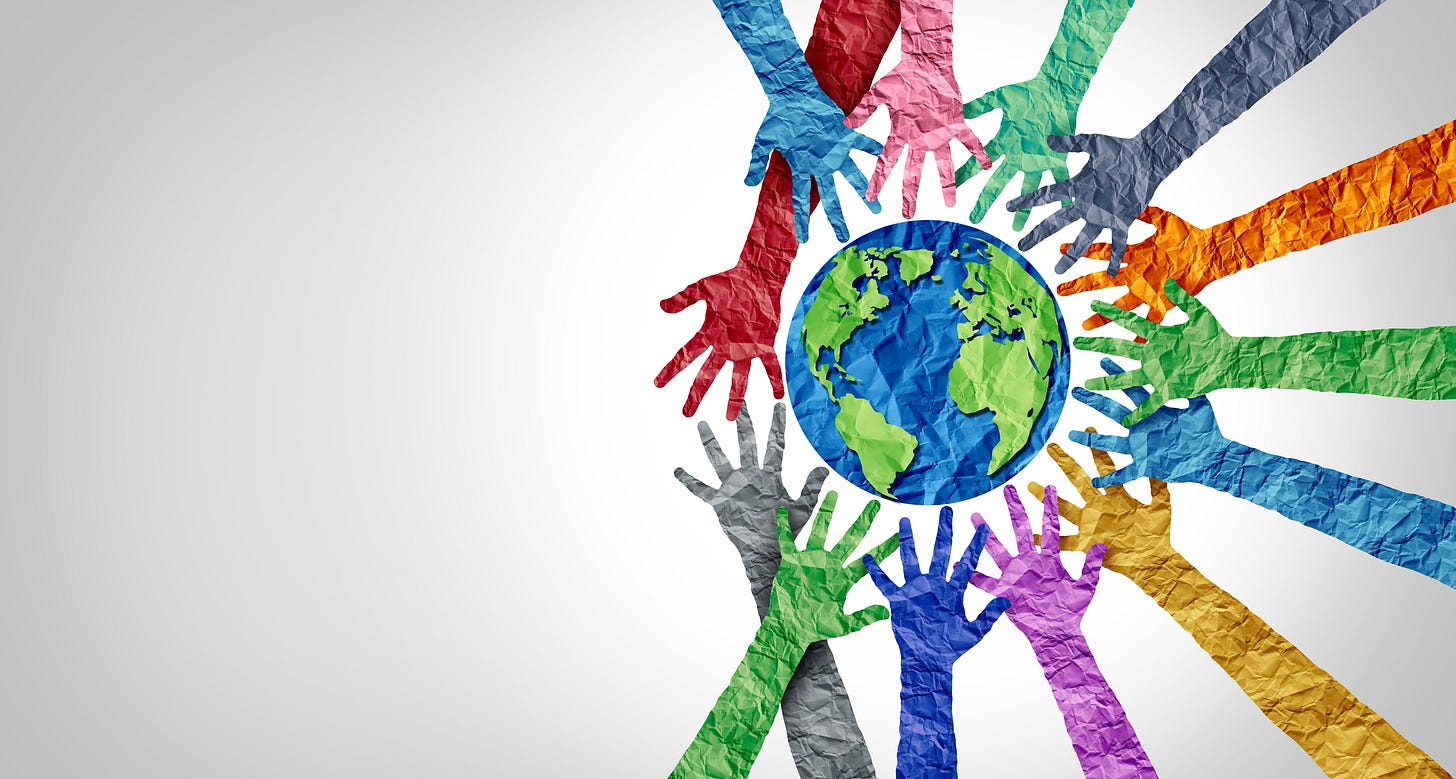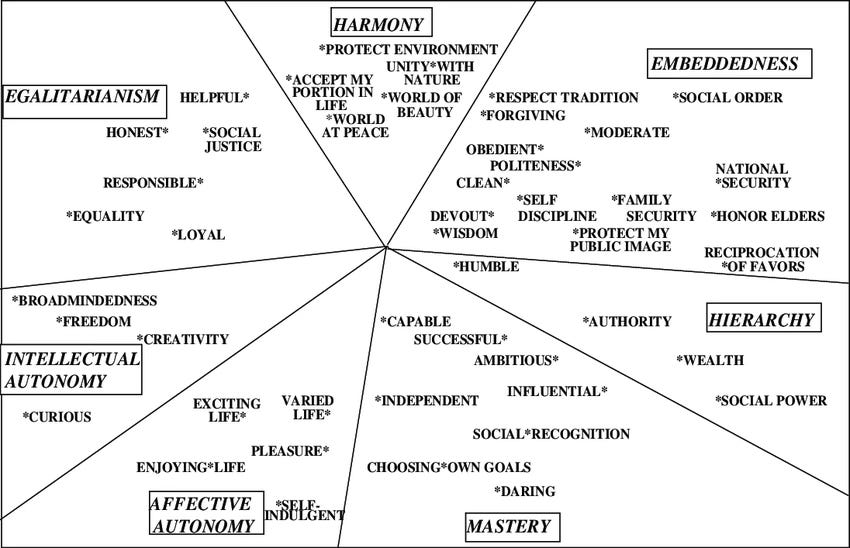Introduction
Welcome to The ContraMind Code.
The ContraMind Code provides you with a system of principles, signals, and ideas to aid you in your pursuit of excellence.
The Newsletter shares the source code through quick snapshots for a systems thinking approach to be the best in what you do.
The Code helps you reboot and reimagine your thinking by learning from the best and enables you to draw a blueprint on what it takes to get extraordinary things done. Please share your valuable thoughts and comments and start a conversation.
Take a journey to www.contraminds.com. Listen and watch some great minds talking to us about their journey of discovery of what went into making them craftsmen of their profession to drive peak performance.
The Geography of Thought: How Asians and Westerners Think Differently
Dominic Timothy writes about Prof. Richard E. Nisbett's book ‘The Geography of Thought’ in this blog. Prof. Nisbett argues that there are these persistent, subtle, but powerful differences in the nature and tendencies of thought between the East and the West.
Here are some points for you to think about and reflect on:
For the great philosophers of the East, the world was in an unerring state of flux, replete with paradox. There is no certainty, for the Taoist, Buddhist; all the natural world is in chaotic, non-controllable flux.
West owes its philosophical underpinnings to ancient Greek thought. The world was static and predictable for the ancient Greeks, populated by objects whose essences could be studied and understood — like the atom!
These philosophies have implications for how people think and work as Asians and Westerners.
For example, US lawyers aim to resolve conflict in terms of clear winners and losers under the rule of law, a system-based application of the idea of justice, theoretically applied equally to all individuals.
However, Japanese lawyers are seen and function more as mediators or negotiators, designated and directed to mitigate conflict and create harmony between the disputing parties.
Asians tend to see things through a wide-angle lens, compared to Westerners’ narrower, object-oriented vision.
Westerners are less affected by background orientation and stimulus; Asians tend to be affected in perception if the context or background changes.
Read the article here.
Navigating India’s Evolving Data Privacy Ecosystem
Here is a very engaging and enlightening conversation with the leading lawyer and founder of KRIA Law, Bharath M. S., on the ContraMinds Podcast on the new Digital Personal Data Protection Act(DPDPA) and how it is expected to change the landscape of data privacy in India.
Here are some topics that are being discussed in this conversation:
How will the DPDPA impact businesses and customers.
How companies must prepare for DPDPA Compliance.
How does managing data change for businesses with this new law that will come into force.
How does the EU’s GDPR Differ from India’s DPDP Act.
You can listen to the entire podcast on:
Apple Podcast | Amazon Music | Google Podcast
Bradman and Tendulkar | The Untold Story Of Two Of Cricket’s Giants
A fantastic documentary by ABC Australia of batting greats of two different eras, what they had in common, and what made them who they were as legends of the modern game. It’s a great story of how heroes and legends are made.
There is a host of brilliant analysis, insights and interviews about:
The early lives of these two legends
Dreams of these two greatest cricketers from Australia and India
An extraordinary account of their stellar careers
Interviews and observations from fellow cricketers, journalists and critics who covered and experienced the effect of both the cricketers in their lifetime.
Click on the above video link to watch this documentary.
Knowing The Culture Code
We often don’t pay much attention to the deep-rooted cultures embedded through the early civilisations of many countries as we know them today. These date back many centuries and have a lasting impact on how people perceive situations, think, behave and act.
Today, the world is interconnected, and we often interact with people from different cultures. We tend to think the environment and place they live and work shape their behaviour and actions. But what you may see when interacting with people could be just the tip of the iceberg.
How do we understand the culture code?
This requires a keen eye for the culture and society around you and who you are interacting with. ‘Reading different books’ about the history and culture of nations or civilisations helps you understand why and how people behave the way they do.
You may often be ‘applying your own cultural hues’ to situations - how you see things, perceive and interpret them, but that may not always be true.
It’s always a good starting point to have an ‘outside-in view’ when you look at people and understand the cultural nuances they come with and display during interactions.
One of the most significant barriers is being ‘extremely judgemental’ about some of the language, behaviours, and responses that you see upfront. These make you jump to conclusions very quickly, and they hide the ‘true’ picture of what is being mentioned or said. Hence, not jumping to conclusions or applying your filters is vital.
It is essential to see the differences in values and cultural orientation, social practices and their implications, and this culture map below by Shalom H Schwartz can serve as an excellent reference to see how different people and cultures perceive the same situation or beliefs or values differently. Consider how different cultures honour elders, display authority and humility, etc.
How will decoding these culture codes help?
When you deal with people from different countries or even from different states as diverse as India, this homework will help you understand, influence, and collaborate better with people. You will get to know what are the underlying triggers for some of the extrinsic behaviours. You will also see what intrinsic drivers act as motivators and demotivators under various situations and, therefore, the decisions they take or don’t take or display trust or lack of trust when working with people.
Decoding culture codes help you recode relationships and influence the outcomes you want.
Some of the lessons we learnt from this week’s mission:
Be aware of how culture influences different systems of thought and perception amongst people across countries or states.
Data Privacy will become the most crucial currency of the future and will require new forms of ‘Consent Exchange’ for businesses to engage with customers.
Knowing about the lives and careers of legends can significantly influence how you look at your ambition, discover new ways to approach your work ethic and define the metrics of what success can mean to you.








